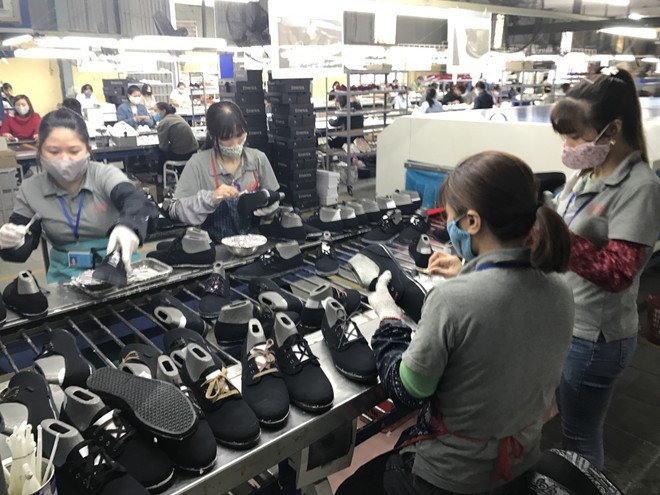Hanoi (VNA) - Experts say three years after it came into effect, the Vietnam-UK Trade Agreement (UKVFTA) has opened many opportunities for businesses in the textile, garment, and leather - footwear sectors to boost exports and increase value.
The UK's official signing of the Comprehensive and Progressive Agreement for Trans-Pacific Partnership (CPTPP) on July 16, 2023, was to strengthen two-way economic trade and investment between Vietnam and the UK.
The agreement represents a favorable opportunity for Vietnamese businesses to increase investment cooperation, attract resources, and link with UK partners. A pathway to begin deeply participating in the global supply chain will result from being active within the UKVFTA.
For the leather footwear industry, the UK is still a key market. Even when the UK was still in the EU, the proportion of the UK market accounted for 25-30% of sales. When the UK left the EU, Vietnam and the UK promptly signed the UKVFTA. Therefore, the leather footwear exports to the UK market continued on uninterrupted.
Ms. Phan Thi Thanh Xuan, General Secretary of the Vietnam Leather Footwear and Handbag Association (Lefaso) said that in 2023, some markets will decrease by up to 30%, but the UK market alone grew by 11%.
The leather footwear industry cooperates with SATRA - the UK's leading standards organisation in meeting standards as well as applying testing equipment to evaluate quality.
The UK market is a traditional market for Vietnam's footwear exports because customers are quite familiar with the product. However, for better growth, according to Ms. Xuan, Vietnamese businesses must also invest to improve production.
The UK has strengths in the footwear industry such as training in fashion design and marketing. However, many Vietnamese businesses have not taken advantage to enhance the value chain, said the representative of Lefaso.
Meanwhile, the issues of supply chain and origin traceability for raw materials will be increasingly raised. The UK will also introduce similar policies to apply to the leather and footwear industry.
Mr. Ngo Chung Khanh, Deputy Director of the Multilateral Policy Department, Vietnam's Ministry of Industry and Trade, said that the most exported goods to Vietnam are machinery, equipment, and raw materials for the leather footwear, and textile industries. Vietnamese businesses need these raw materials to export leather shoes back to the UK, thereby taking advantage of the UKVFTA.
 Promoting the application of technology helps businesses reduce costs and improve competitiveness. (Photo: Duc Duy/Vietnam+)
Promoting the application of technology helps businesses reduce costs and improve competitiveness. (Photo: Duc Duy/Vietnam+)At a recent seminar on the UKVFTA organised by Industry and Trade Magazine, Bob Fletcher, Director of Global Trade and Customs Services of Deloitte Vietnam said that, through cooperation with the UK, Vietnamese businesses have opportunities to streamline the supply chain, reduce costs, and improve efficiency.
Mr. Fletcher also recommended that Vietnamese businesses should take advantage of digital technologies and e-commerce platforms to expand search scope, reach markets, and connect with consumers effectively. They also need to use digital technologies to manage supply chains, customer relationship management, as well as online marketing./.





























